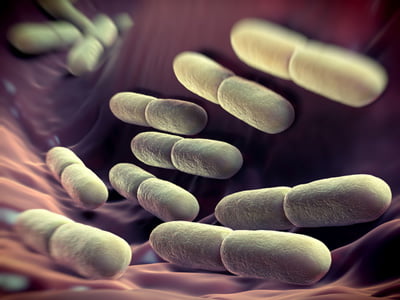Gut bacteria reverses autism-related social behaviour in mice
Posted: 16 June 2016 | Victoria White, Digital Content Producer | No comments yet
Researchers have discovered that the absence of one specific species of gut bacteria causes autism-related social deficits in mice…


Researchers from Baylor College of Medicine have discovered that the absence of one specific species of gut bacteria causes social deficits in mice.
By adding this bacterial species back to the guts of affected mice, the researchers were able to reverse some of the mice’s behavioural deficits, which are reminiscent of symptoms of autism spectrum disorders in humans. The investigators are now looking to explore the effects of probiotics on neurodevelopmental disorders in future work.
“Other research groups are trying to use drugs or electrical brain stimulation as a way to reverse some of the behavioural symptoms associated with neurodevelopmental disorders–but here we have, perhaps, a new approach,” says Dr Mauro Costa-Mattioli, associate professor of neuroscience at Baylor. “Whether it would be effective in humans, we don’t know yet, but it is an extremely exciting way of affecting the brain from the gut.”
Gut microbes and the brain
The inspiration for the research came from human epidemiological studies that have found that maternal obesity during pregnancy could increase children’s risk of developing neurodevelopmental disorders, including of autism spectrum disorders. In addition, some individuals with autism also report recurring gastrointestinal problems. With emerging research showing how diet can change the gut microbiome and how gut microbes can influence the brain, Costa-Mattioli and his colleagues suspected there could be a connection.
To begin, the researchers fed approximately 60 female mice a high-fat diet that was the rough equivalent of consistently eating fast food multiple times a day. They bred the mice and waited for them to bear young. The offspring stayed with their mother for three weeks and then were weaned onto a normal diet. After a month, these offspring showed behavioural deficits, such as spending less time in contact with their peers and not initiating interactions.
“First we wanted to see whether there was a difference in the microbiome between the offspring of mouse mothers fed a normal diet versus those of mothers fed a high-fat diet. So, we used 16S ribosomal RNA gene sequencing to determine the bacterial composition of their gut. We found a clear difference in the microbiota of the two maternal diet groups,” says Shelly Buffington, a postdoctoral fellow in Costa-Mattioli’s lab. “The sequencing data was so consistent that by looking at the microbiome of an individual mouse we could predict whether its behaviour would be impaired.”
Restoring the gut microbiome
Buffington next tested whether the specific differences in the microbiome were causative factors underlying the social impairments in offspring of mothers fed a high-fat diet. Because mice eat each other’s faeces, the researchers housed the animals together so that they would acquire microbiota from their cagemates. When socially impaired three-week-old mice born to mothers on a high-fat diet were paired with normal mice, a full restoration of the gut microbiome and a concurrent improvement in behaviour was observed within four weeks. The investigators concluded that one or more beneficial bacterial species might be important for normal social behaviour. Faecal-transplant experiments in mice without microbiota (germ-free mice) provided causal evidence that an imbalanced microbial ecology in the mice born to mothers on a high-fat diet is responsible for their social deficits.
The investigators next wanted to know the specific bacterial species that could be affecting the social behaviour of the mice. Whole-genome shotgun sequencing revealed one type of bacteria, Lactobacillus reuteri, which was reduced more than nine-fold in the microbiome of mice born to mothers on the high-fat diet.
“We cultured a strain of L. reuteri originally isolated from human breast milk and introduced it into the water of the high-fat-diet offspring. We found that treatment with this single bacterial strain was able to rescue their social behaviour,” Buffington says. Other behaviours related to autism spectrum disorder, such as anxiety, were not restored by the reconstitution of the bacteria.
The researchers believe that their work, which uses a human bacterial species to promote oxytocin levels and improve social behavioral deficits in deficient mice, could be explored as a probiotic intervention for the treatment of neurodevelopmental disorders in humans.


